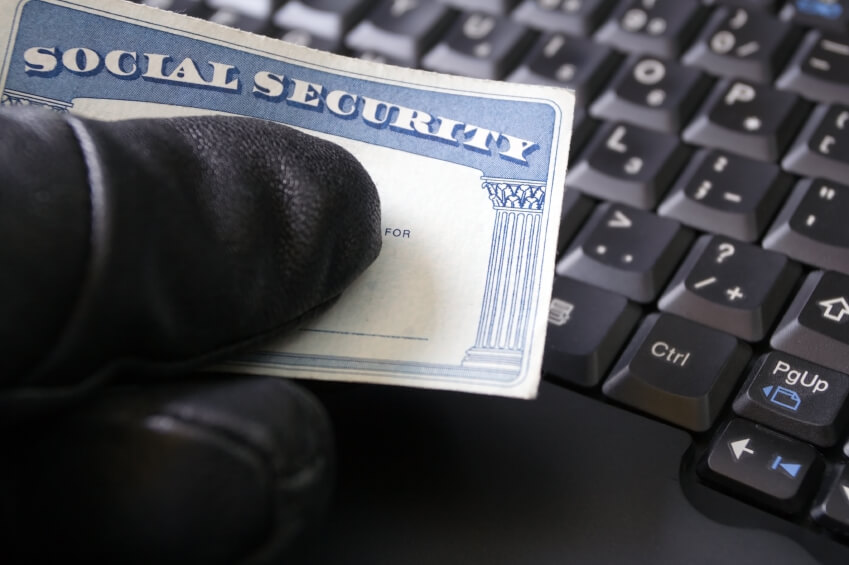Don’t Become an Identity Theft Victim

As technology continues to advance, the threat of identity theft becomes increasingly relevant in our society. Identity thief in 2023 refers to individuals or groups who use unauthorized means to obtain personal information such as social security numbers, credit card numbers, and bank account information. With the widespread use of online transactions and the accumulation of vast amounts of personal data, identity theft has become a major issue for both individuals and businesses. In this rapidly evolving digital world, it is crucial to stay informed and take proactive measures to protect oneself from the dangers of identity theft.
What Is Identity Theft
Identity theft refers to the unauthorized use of another person’s personal information for fraudulent purposes. This can include using someone else’s Social Security number, credit card information, or other sensitive information to commit crimes such as opening bank accounts, obtaining loans, or making purchases. The consequences of identity theft can be severe, as victims may suffer financial loss, damage to their credit score, and a range of other problems that can take years to resolve.
Identity theft is a growing concern in the digital age, as more and more personal information is stored online and made vulnerable to theft. It’s important for individuals to take proactive steps to protect their personal information, such as regularly monitoring their credit report, using strong passwords, and being cautious when sharing personal information online. By taking these steps, individuals can help to reduce their risk of becoming a victim of identity theft and protect their financial and personal security.
What Are The Most Common Types of Identity Theft and how to Identify them?
Hacker or Cybercriminal: They use technology and the internet to steal sensitive information.Insider Thief: An employee or someone with access to sensitive information, who uses it for personal gain.Skimming Thief: They use devices attached to ATMs, gas pumps, or other payment machines to steal card information.Dumpster Diver: They go through trash to find discarded bank statements, credit card bills, and other sensitive information.Phishing Scammer: They use email, phone, or text to trick people into revealing their personal information.Impersonator: They pretend to be someone else, such as a government agent, to obtain sensitive information.Family Member Thief: They steal personal information from family members or close acquaintances.Medical Identity Thief: They steal medical information to obtain services or prescriptions.
Identity Theft Statistics
Identity Theft / Fraud StatisticsDataAverage number of U.S. identity fraud victims annually11,571,900Percent of U.S. households that reported some type of identity fraud7 %Average financial loss per identity theft incident$4,930Total financial loss attributed to identity theft in 2013$21 billionTotal financial loss attributed to identity theft in 2010$13.2 billionPercent of Reported Identity Thefts by Type of FraudPercent ReportedMisuse of Existing Credit Card64.1 %Misuse of Other Existing Bank Account35 %Misuse of Personal Information14.2 %States with the highest identity theft complaint rateVictims Per 100,000
ArizonaCaliforniaFloridaTexasNevada
149139.1133.3130.3126.0States with the lowest identity theft complaint rateVictims Per 100,000
South DakotaNorth DakotaIowa
33.835.744.9
MontanaWyoming
46.546.9
Source: U.S. Department of Justice, Javelin Strategy & Research
10 Steps to Avoid Identity Theft
Here are steps you can take to minimize your chances of falling victim to identity theft:
Guard personal information:
Do not give out personal information, such as account or credit card numbers, on the phone or over the Internet unless you have initiated the contact. (Identity thieves could pose as bank officials, Internet providers or credit card company representatives).
Report lost or stolen checks immediately:
Examine new checks to be sure none were stolen during shipment, and store them in a safe and secure location.
Shred documents:
Shred unused financial solicitations and other financial documents such as statements or receipts (including ATM receipts) before discarding them.
Protect your mail:
Make sure your mailbox is secure, and promptly remove mail when it has been delivered. Identity thieves often target residential mailboxes to obtain credit card offers and financial statements.
Deliver checks to the bank:
When ordering new checks, pick them up at the bank instead of having them sent to your home.
Don’t leave mail in your mailbox:
Deposit outgoing mail at your local post office; don’t leave it in your mailbox. If you will be away from home for an extended time, ask the post office to hold your mail.
Guard your Social Security Number:
Give out your Social Security number only when absolutely necessary or when required by law.
Only carry necessary documents with you:
Don’t carry extra credit cards, your Social Security card, birth certificate or passport in your wallet or purse, unless you need it.
Copy your information:
Make copies of your credit cards, and record your bank and investment account numbers. Keep this information in a secure place, along with the telephone numbers for customer service or the fraud department for each, so you can quickly notify them if there’s a problem.
Monitor your credit:
Follow your credit card billing cycles closely. Make sure you are receiving your credit card bill every month— identity thieves may try to change your billing address. Review your credit report at least once a year to check for errors and fraudulent use of your account. Consumers can now get a free copy of their credit report annually.
Create hard-to-guess passwords:
Create passwords or PIN numbers out of a random mix of numbers and letters. When creating passwords or PIN numbers, do not use your birthday, pet names, the last four digits of your Social Security number, your mother’s maiden name or anything else that could easily be discovered by thieves.
Social Media:
Social media has become an essential part of our daily lives, providing us with a platform to connect with friends and family, share our thoughts and experiences, and even promote our businesses. However, this convenience comes with its own set of risks. One such risk is identity theft, where fraudsters can access and use personal information for illegal purposes. Social media platforms store vast amounts of sensitive information, including full names, birth dates, addresses, and even financial information, which can be easily accessible to cyber criminals.
They can use this information to open bank accounts, take out loans, and even make purchases in the victim’s name. Additionally, many people tend to use weak passwords and do not take enough precautions to secure their accounts, which makes them more vulnerable to identity theft. Thus, it is essential to be aware of these dangers and to take necessary precautions to protect our personal information while using social media.
Install a firewall:
Install a firewall on your computer. And before disposing of your computer, remove data by using a strong “wipe” utility program. Don’t trust the delete function to remove files containing sensitive information.
Why Get Identity Theft Protection?
Here are some of the benefits and advantages of having an identity theft insurance plan:
Protect personal information: Identity theft protection helps to safeguard sensitive personal information such as social security numbers, bank account information, and credit card numbers from falling into the wrong hands.Prevent financial loss: Identity theft can result in significant financial loss, such as unauthorized transactions, maxed-out credit cards, and drained bank accounts. Identity theft protection helps prevent such losses.Monitor for suspicious activity: Identity theft protection services continuously monitor credit reports, bank accounts, and other financial information to detect any suspicious activity and alert the user.Provide assistance: In the event of identity theft, identity theft protection services offer support, assistance, and resources to help victims recover and restore their identity.Peace of mind: Knowing that your personal information is protected and monitored can provide peace of mind and a sense of security.
Look at the identity theft protection options at Freeway Insurance
For your peace of mind, Freeway Insurance offers identity theft protection options. You have the option to enroll for our ID theft protection plan online or by contacting us at 800-777-5620 or visiting one of our local offices.







